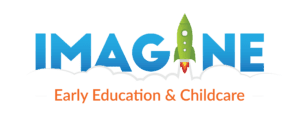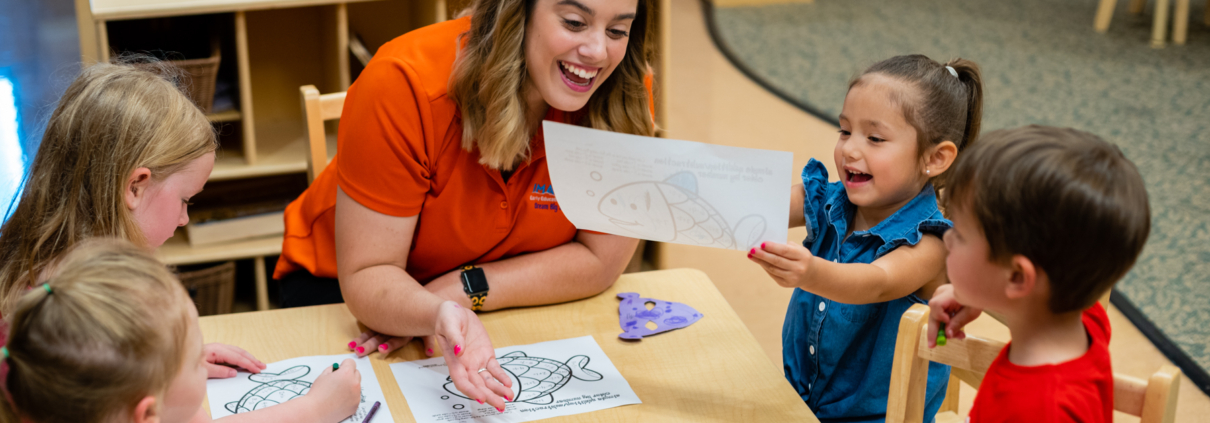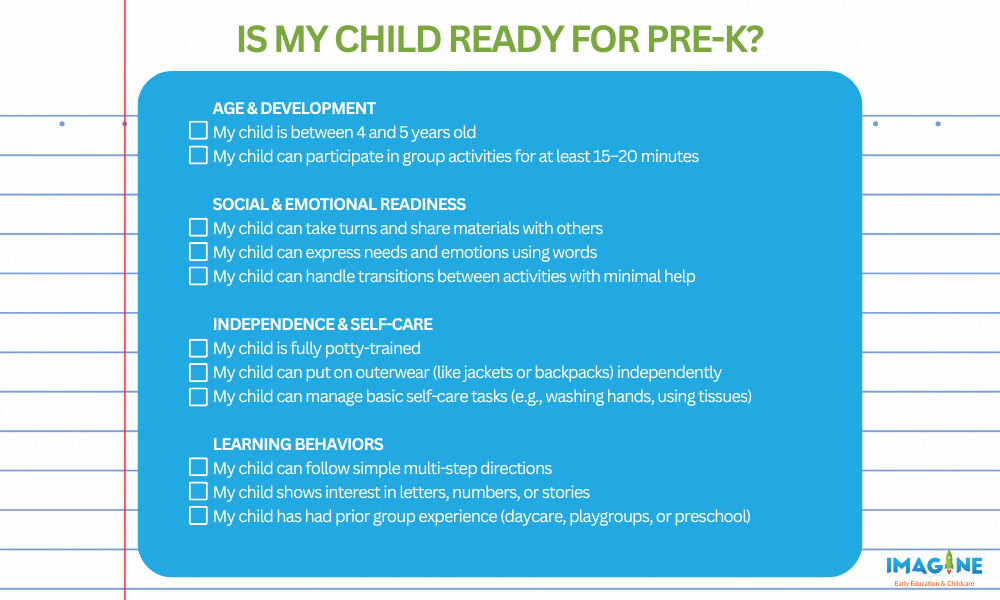Preschool vs Pre-K: What’s the Difference and Which One Does My Child Need?
Let’s Cut to the Chase: Preschool programs typically serve children ages 3–4 and focus on early learning through play, while pre-K provides more structured educational experiences specifically for 4–5-year-olds preparing for kindergarten readiness. The right choice between these two options depends primarily on your child’s age and developmental readiness for different types of learning environments.
Many parents face uncertainty when deciding between preschool and pre-kindergarten programs for their young children. While both support early childhood education, they serve different purposes and age groups. Preschool introduces children to a social learning environment through play-based activities and basic concepts. Pre-K, on the other hand, offers more structured learning experiences with specific academic and social skills to prepare children for success in kindergarten. Understanding these differences helps parents make informed decisions based on their child’s individual needs, development stage, and learning style. 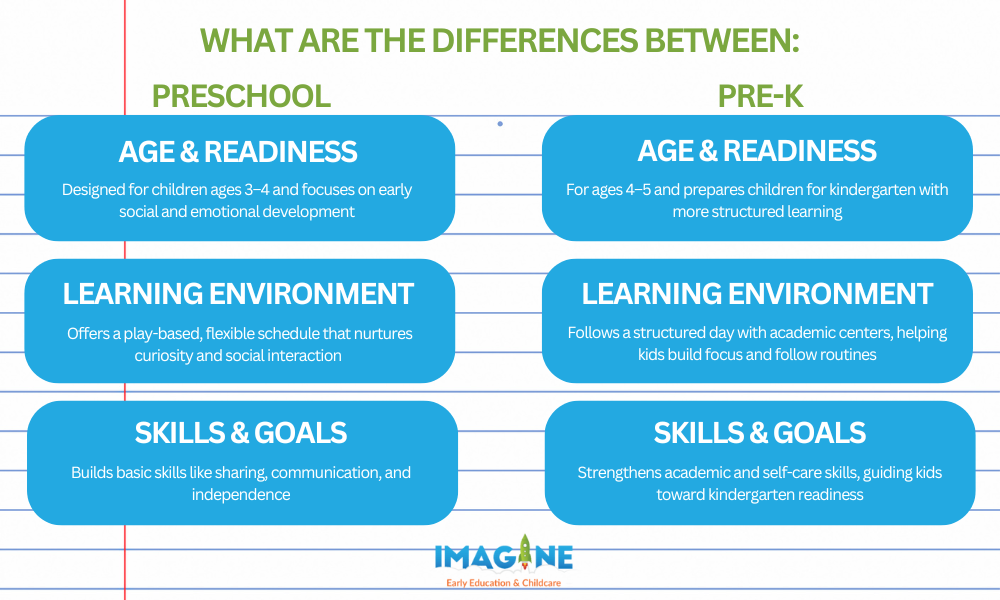
Understanding Preschool Programs
Program Basics
Preschool programs typically welcome younger children between ages 3 and 4, with most children starting around age 3. Pre-k programs offer various scheduling options, from two to five days per week, and both half-day and full-day options to accommodate different family needs. The focus centers on helping children develop social skills, independence, and early learning foundations through structured play and group activities.
Daily Structure
A typical preschool classroom day balances child-directed play with teacher-guided activities. The schedule includes indoor and outdoor playtime, group circle time for stories and songs, and dedicated periods for art, movement, and exploration. Children participate in both individual and small group activities, fostering social connections while learning to follow classroom routines.
Learning Approach
Preschool learning happens primarily through guided play experiences. Teachers create purposeful early childhood education environments where children naturally develop skills while engaging with materials, peers, and adults. Children learn to take turns, share materials, and express their needs through words – all while having fun. This approach helps children view learning as an enjoyable experience rather than a task.
Core Learning Areas
In high-quality preschool programs, children explore foundational concepts through hands-on activities. They learn to recognize colors, shapes, letters, and numbers through games, songs, and creative projects. Social-emotional development grows as children practice sharing, taking turns, and managing emotions with teacher support. Physical development progresses through activities like building with blocks, using art materials, climbing outdoor equipment, and participating in music and movement activities. 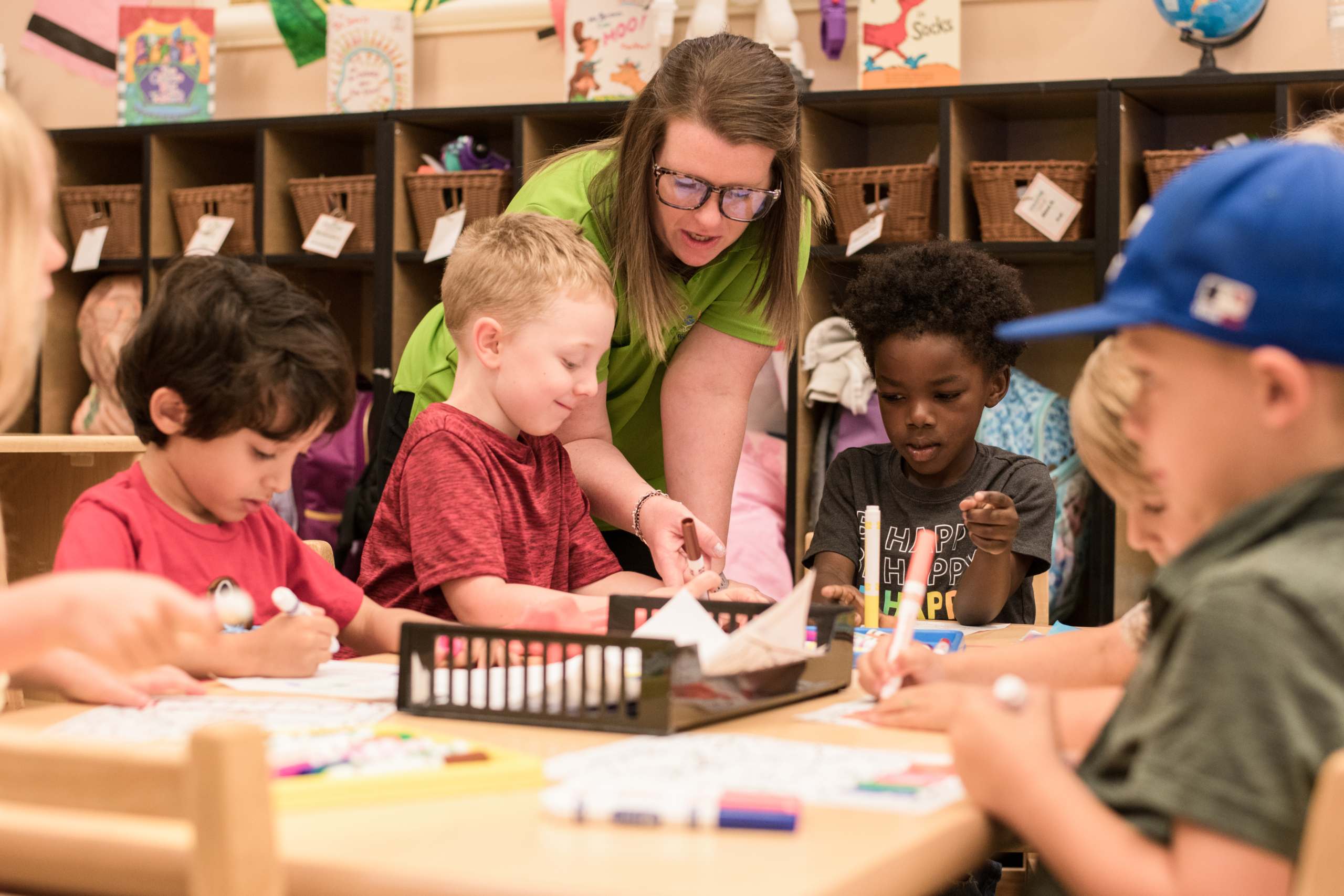
Pre-K Program Characteristics
Program Framework
Pre-k programs typically welcome young children between ages 4-5, with some preschool programs accepting mature 3-year-olds who demonstrate school readiness. These early childhood education programs focus on building academic and social foundations through structured learning experiences. Pre-k teachers track progress through observation, developmental checklists, and periodic skill assessments that measure both academic and social-emotional development.
Learning Environment
The pre-k classroom follows a structured daily schedule with dedicated learning centers for different subjects. Children rotate through areas designed for reading, math, art, and dramatic play. The day includes both teacher-directed lessons and guided exploration time, with specific periods set aside for group activities, individual work, and outdoor play.
Curriculum Elements
Quality pre-kindergarten programs introduce foundational academic skills through play-based learning. Children practice early reading skills like letter recognition, phonemic awareness, and early writing skills. Math activities cover counting, basic addition, shapes, and patterns. Science learning happens through hands-on experiments, nature observation, and simple cause-and-effect activities that spark curiosity and analytical thinking.
Kindergarten Preparation
Pre-k focuses on developing specific skills needed for kindergarten success. Children learn to follow multi-step directions, work independently, and complete assigned tasks. Social skills include taking turns, sharing materials, and participating in group discussions. The educational experience builds confidence through gradual challenges, helping children become comfortable with structured learning environments while maintaining their natural enthusiasm for discovery.
Making the Right Choice
Age and Development
Children typically enter preschool programs between ages 3-4, while pre-k programs focus on the year before kindergarten, usually age 4-5. Most preschoolers should be able to follow basic directions and participate in group activities for short periods. For kindergarten readiness, look for your child’s ability to sit still for 15-20 minute activities and handle transitions between tasks. Your child’s physical stamina matters too – pre-k often involves a full day schedule, while preschool commonly offers half-day options better suited for younger children still needing afternoon naps.
Individual Assessment
Watch how your child learns best – some young children thrive with hands-on exploration common in play-based preschool programs, while others may be ready for more structured pre-kindergarten classroom learning activities. Previous childcare centers or daycare experience can indicate how well your child adapts to group settings. Consider your child’s independence with basic self-care tasks like using the bathroom and putting on outerwear. Pre-k classrooms generally expect more self-sufficiency than preschool environments.
Program Evaluation
Compare daily schedules – preschool programs often emphasize free play and social skills building through activities like circle time and arts and crafts. Pre-kindergarten programs incorporate more academic skills and early learning concepts while maintaining play-based learning. Review how each program tracks child development and communicates progress with families. Pre-k typically includes more formal skill assessments to prepare for kindergarten transition.
Quality Indicators
Look for preschool ratios around 1:8 and pre-k ratios of 1:10 or better. Preschool teachers should have early childhood education training, while certified teachers often lead pre-k classes. Evaluate classroom spaces – both should have distinct areas for different types of activities, appropriate materials and supplies, and proper safety measures. Outdoor play spaces should be age-appropriate and well-maintained. Consider each facility’s security protocols for drop-off, pick-up and visitors.
Making the Right Choice: A Guide to Preschool and Pre-K for Your Child
While both preschool programs and pre-k programs offer valuable early learning experiences, they serve different developmental stages and goals. Our preschool program provides a gentle introduction to structured learning for younger children, while our pre-k curriculum offers focused preparation for kindergarten readiness through specific academic and social skills building.
The right choice for your family depends on your child’s age requirement and development level, and your educational goals. Consider factors like your child’s social skills, independence, and learning style when making this decision. Many families find that starting with preschool and transitioning to pre-k creates a natural progression in their child’s early childhood education journey.
Find the Right Fit with Imagine Early Education
At Imagine Early Education, we believe every child deserves an exceptional start to their educational experience. Our high-quality curriculum, state-of-the-art facilities, and low student-to-teacher ratios ensure your child receives the individualized attention they need to thrive. We offer both preschool and pre-k programs designed to match your child’s developmental stage, with experienced teachers who customize learning experiences to support each child’s unique growth path.
What sets us apart is our commitment to whole-child development, incorporating emotional development, STEAM activities, and creative expression into daily routines. Our secure facilities, nutritious meal programs, and regular parent communication ensure peace of mind for families entrusting us with their children’s early education.
Ready to give your child the strongest possible foundation for future success? Schedule a tour today to see our dynamic pre-k classroom in action, meet our passionate teaching team, and discover why families choose Imagine Early Education. Contact us to learn more about enrollment options or visit our website for detailed program information. Your child’s journey to lifelong learning starts here.
